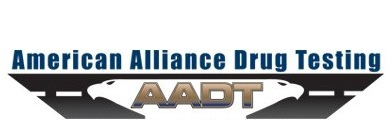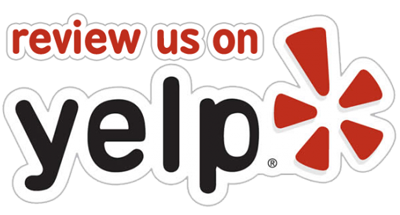The California Public Utilities Commission (PUC or CPUC) regulates for-hire passenger carriers, such as limousines, airport shuttles, and charter bus companies both PSC and TCP’s in the state.
Q: Is there more than one kind of for-hire passenger carrier license issued by the Public Utilities Commission?
A: Yes. The PUC regulates and issues passenger stage corporation (PSC) certificates and charter-party carrier (TCP) permits and certificates for companies transporting 15 or fewer passengers in California. There are distinct differences in the manner in which PSCs and TCPs operate:
- A PSC provides transportation service to the general public on an individual-fare basis. Most PSCs operate a fixed route, scheduled service, or an on-call, door-to-door airport shuttle-type service.
- A TCP charters a vehicle, on a prearranged basis, for the exclusive use of an individual or group. Charges are based on mileage or time of use, or a combination of both. Also falling under the TCP category are round-trip sightseeing services, and certain specialized services not offered to the general public, such as transportation incidental to another business and transportation under contract to a governmental agency, an industrial or business firm, or a private school.
Q: What is the PUC’s drug and alcohol testing program?
A: Applicants for PSC or TCP operating authority must provide for a mandatory controlled substance and alcohol testing program as adopted by the Commission pursuant to Public Utilities Code Sections 1032.1 and 5374(a)(1)(I) and (b). The program, which is substantially similar to federal drug testing regulations, applies to drivers who operate vehicles with a seating capacity of 15 persons or less. Program requirements are set forth in Commission Resolutions TL-18716 and TL-18760. Included are requirements for pre-employment, random and post accident testing of drivers, employee education, and supervisor training. Applicants who will employ drivers to operate vehicles seating 16 persons or more are required to comply with the federal regulations.
Also see General Orders 157 & 158, both are virtually identical and set forth in Commission Resolutions TL-18716 and TL-18760.
http://docs.cpuc.ca.gov/PUBLISHED/GENERAL_ORDER/71399.pdf
http://docs.cpuc.ca.gov/PUBLISHED/GENERAL_ORDER/610.pdf
CA Public Utilities Code
1032.1 (a) The commission shall not issue or transfer a certificate of public convenience and necessity pursuant to this article unless the applicant provides for a mandatory controlled substance and alcohol testing certification program as adopted by the commission.
(b) The commission, after considering any suggestions made by the Department of the California Highway Patrol, shall adopt a program that includes, but need not be limited to, all of the following requirements:
(1) Drivers shall test negative for each of the controlled substances specified in Part 40 (commencing with Section 40.1) of Title 49 of the Code of Federal Regulations, before employment. Drivers shall test negative for these controlled substances and for alcohol at such other times as the commission, after consulting the
Department of the California Highway Patrol, shall designate. As used in this section, a negative test for alcohol means an alcohol screening test showing a breath alcohol concentration of less than 0.02 percent.
(2) Procedures shall be substantially as in Part 40 (commencing with Section 40.1) of Title 49 of the Code of Federal Regulations, except that the driver shall show a valid California driver’s license at the time and place of testing, and except as provided otherwise in this section. Requirements for rehabilitation and for return-to-duty and follow-up testing, and other requirements except as provided otherwise in this section, shall be substantially as in Part 382 (commencing with Section 382.101) of Title 49 of the Code of Federal Regulations.
(3) A test for one applicant shall be accepted as meeting the same requirement for any other applicant. Any negative test result shall be accepted for one year as meeting any requirement for periodic testing for that applicant or any other applicant, if the driver has not tested positive subsequent to a negative result. However, an earlier negative result shall not be accepted as meeting the pre-employment testing requirement for any subsequent employment, or any testing requirements under the program other than periodic testing.
(4) In the case of an applicant who is also a driver, test results shall be reported directly to the commission. In all other cases, results shall be reported directly to the applicant.
(5) All test results are confidential and shall not be released without the consent of the driver, except as authorized or required by law.
(6) Applicants shall be responsible for compliance with, and shall pay all costs of, this program with respect to their employees and potential employees, except that an applicant may require employees who test positive to pay the costs of rehabilitation and of return-to-duty and follow-up testing.
(7) The requirements of the program do not apply to any driver required to comply with the controlled substance and alcohol use and testing requirements of Part 382 (commencing with Section 382.101) of Title 49 of the Code of Federal Regulations, or Section 34520 of the Vehicle Code, or to any driver exempted from the provisions of that section.
(c) No evidence derived from a positive test result pursuant to the program shall be admissible in a criminal prosecution concerning unlawful possession, sale, or distribution of controlled substances.
(d) On the request of an applicant, the commission shall give the applicant a list of consortia certified pursuant to Part 382 (commencing with Section 382.101) of Title 49 of the Code of Federal Regulations that the commission knows offer tests in California.
(e) The commission shall conduct random and for-cause inspections of applicants’ documents supporting compliance with the program.
(f) For purposes of this section, “employment” includes self-employment as an independent driver.
5374. (a) (1) Before a permit or certificate is issued or renewed, the commission shall require the applicant to establish reasonable fitness and financial responsibility to initiate and conduct or continue to conduct the proposed or existing transportation services. The commission shall not issue or renew a permit or certificate pursuant to this chapter unless the applicant meets all of the following requirements:
(I) It provides for a mandatory controlled substance and alcohol testing certification program as adopted by the commission pursuant to Section 1032.1.
(b) In addition to the requirements in subdivision (a), charter-party carriers shall meet all other state and, where applicable, federal regulations as prescribed.
Visit California PUC website



